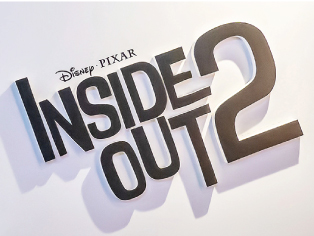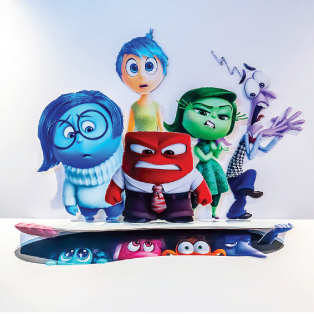
Inside Out 2 & IFS


[For your maximum enjoyment, please watch the movie before reading this article.]
Like its prequel, Inside Out 2 deftly illustrates Internal Family Systems (IFS).
We’ll talk about how it departs from IFS later. But for now, let’s start with 9 ways the movie reflects IFS:
1. Protector Parts Have Jobs
“We all have a job to do,” Riley’s anxious part explains. Truth is, all protector parts do. Manager parts proactively keep us safe while Firefighter parts react to triggering events by soothing our internal systems using any means necessary.
Both Managers and Firefighters strive to keep our internal thermostat stable. Just so. Status quo.
2. Most Parts Are Younger than You
If a part claims it’s older than you, perhaps it’s because the part has been with you “forever,” or because its role is to dole out wisdom or advice—like a sage guru.
3. Parts Have Multiple Emotions
Despite her name, Joy (in the movie) tears up at one point. Riley’s Angry part isn’t angry all the time. So, whenever you’re unsure where the feeling you’re experiencing is coming from, ask inside: Which part is feeling this way? and wait for the answer.
4. Everyone Has Parts
Most (if not all) of us have common parts like Sadness, Anger, or Envy. That’s why we see Riley’s parents and friends with similar-looking parts as hers.
5. Hierarchies
In the movie, Joy and Anxiety call the shots, while the other parts follow their leadership. Parts’ hierarchy is real. That’s why we can’t approach exiled parts (such as suppressed emotions in the movie) without first asking permission from their internal protectors.
6. Clusters of Parts
Notice how, within Riley’s mind, Anxiety shows up with Envy, Embarrassment, and Ennui/Boredom? Every cluster of parts contain at least one Manager (like Anxiety in this example) and Firefighter (Ennui), plus an Exile (Embarrassment). It’s also possible for parts to be polarized against each other, like Riley’s Anxiety and Joy parts.
7. Gender Differences
Riley, a girl, has male parts (Anger, Fear, and Embarrassment). Likewise, some of your parts may not reflect your gender, while other parts may be gender-neutral.
8. Suppressed Emotions Live On
They may not roam your conscious awareness—except when they escape protector parts’ restraints—but parts we suppress continue to exist in our psyche. Teenage Riley, for instance, still (secretly) likes the cartoon she watched as a child.
9. Unaware of Parts
Riley’s clueless about her parts. Likewise, most are oblivious as to how much their parts run their lives.
The Self
Riley’s joyful part thinks her Self is a mishmash of noble beliefs and otherwise. IFS disagrees. The Self—with capital S—can never be corrupted or compromised.
Self is courageous, calm, compassionate, curious, confident, creative, connected, and has clarity.
Always.
We can also understand Self as our spirit. Seen this way, the fruit of the Spirit also describes the qualities of our Self: love, joy, peace, patience, kindness, goodness, faithfulness, gentleness, self-control (Galatians 5:22-23).
Final Word
If you think Inside Out 2 is captivating, good news. Your own inner world—a rich treasure trove—awaits your exploration.
So, look inward. Stay curious. Keep befriending your precious parts.
This way, they’ll see how capable you are—your real Self—to lead your internal system.





